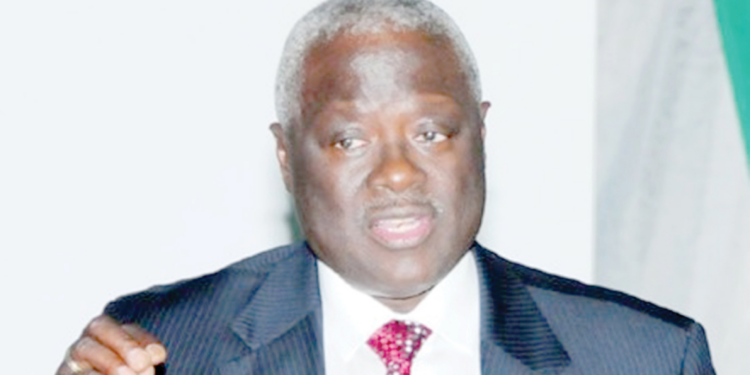A former chief of army staff (COAS) General Martin Luther Agwai has said the success of the safe school initiative depends on collective responsibility of stakeholders and citizens by taking ownership and providing intelligence to security agencies.
In a keynote address at the Armed Forces Safe School Summit and launch of Standard Operating Procedure (SOP) on safe schools held at the Nigerian Army Resource Centre, Abuja, he said the move reflect the Armed Forces’ collective commitment to upholding the sanctity of education and creating a conducive environment for teaching and learning to thrive.
He said “Regrettably for learners as well as teachers currently in schools, the fear of them becoming possible victims and the trauma created by having their fellow students and friends attacked is having a negative impact on the quality of education in our Country”.
He continued “This initiative must be a collective responsibility of all our communities. Our citizens at all levels of government, the civil society and NGO’s must resolve to have a safe school environment for our children by always providing the necessary vital information which is to be acted upon for the good of all.
“Accordingly, all of us must take collective responsibility and ownership for the development of this safety initiative”.
He said though the Nigeria Security and Civil Defence Corps (NSCDC) is the lead agency for such a task and the military should only come in when it is beyond the capacity of the primary actors.
“However, I feel all security agencies have important roles to play towards the successful eradicating this menace of kidnapping and general insecurity; especially Nigeria Police Force in view of the fact that at the moment it is only them that have prosecuting powers.
“This again must be done in a quick manner as time is of the essence in order to overcome such a challenge”.
General Agwai urged Schools to adopt the strategy of building confidence in our learners by providing them with some safety skills that would assist them in case of any emergency.
He said “such safety skills could equally form part of the schools’ curriculum,”.
Earlier in his opening remarks, the Chief of Defence Staff General Christopher Musa said the Safe Schools Summit was designed to provide a platform to enhance positive contributions by stakeholders through the exchange of ideas.
He said this is geared towards the adoption of holistic approaches for the attainment of the intent and objectives of Nigeria’s Safe Schools Declaration.
This he said is to guarantee that children go to school without being afraid that they could be intimidated or abducted by miscreants.
“The success of such an initiative without doubt will require the uttermost commitment of all stakeholders who particularly are looked up to by the citizens of the country for their security and safety. It is therefore in the interest of our dear nation that every stakeholder works assiduously to build a strong, safer, more secure, and prosperous future for our children and our beloved country”.
He reiterated that the Armed Forces of Nigeria remains committed to providing every necessary assistance for the security of school children and other learning institutions against attacks within the ambit of Nigeria’s constitution.
The Defence Chief said the volatile, uncertain, complex and ambiguous nature of the current security environment requires better synergy among the military and other security agencies.
He explained that the Standing Operating Procedure (SOP) will provide necessary guidelines for members of the Armed Forces to implement the Safe Schools Initiative within the confines of international and national laws.
“Notwithstanding this effort, the output of today’s deliberation would help streamline our collective responses towards addressing the current security challenge going forward,” he said.
The coordinator of Safe School financing Hajiya Halima Iliya said Nigeria’s educational system has always been in deep crisis ranging from kidnapping and terror attacks.
She said the safe school initiative was delayed due to lack of policy and budgetary allocations to provide needed support.
In a goodwill message, Abiola Sanusi said attacks on schools has increased the number of school drop outs.
She added that such attacks contribute to learning loss.



